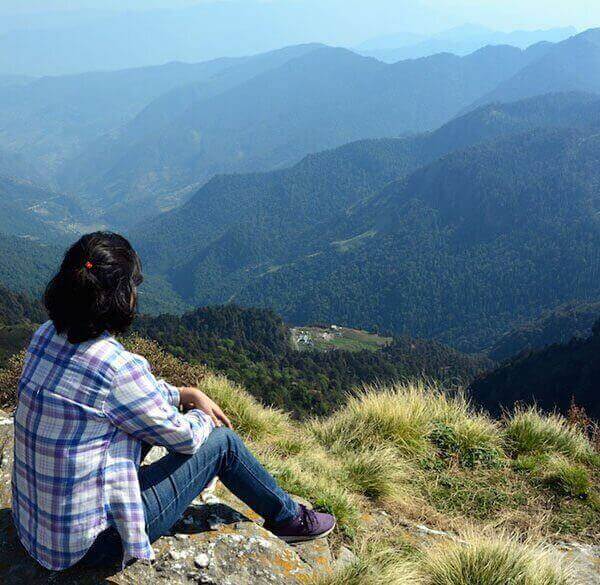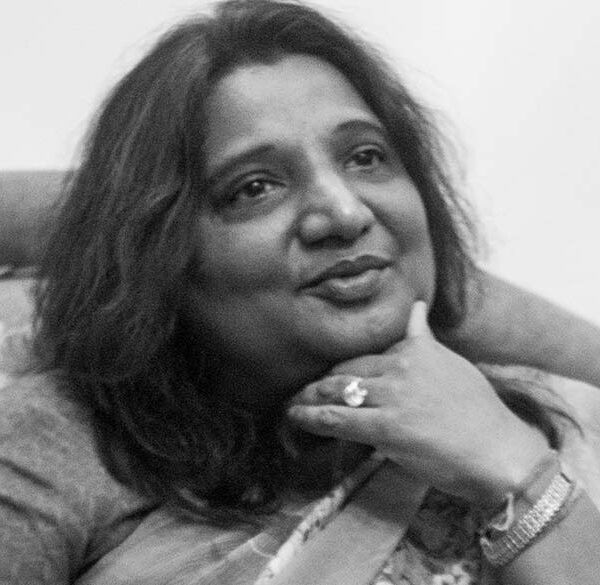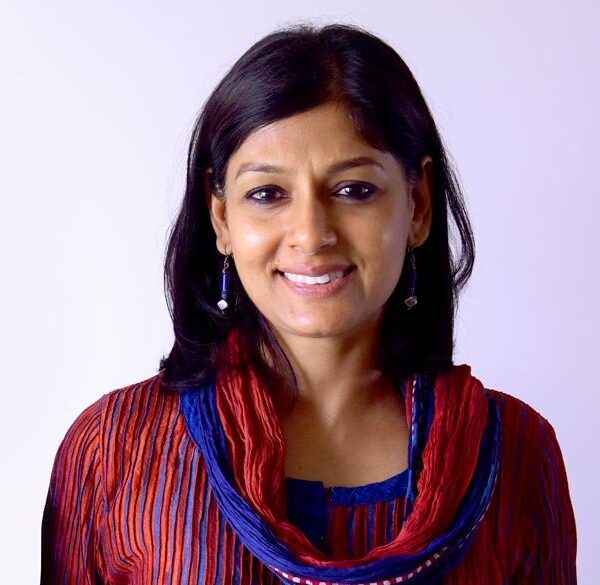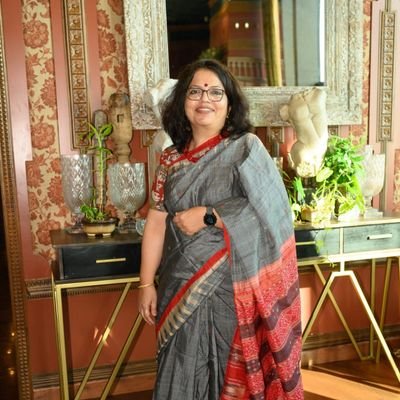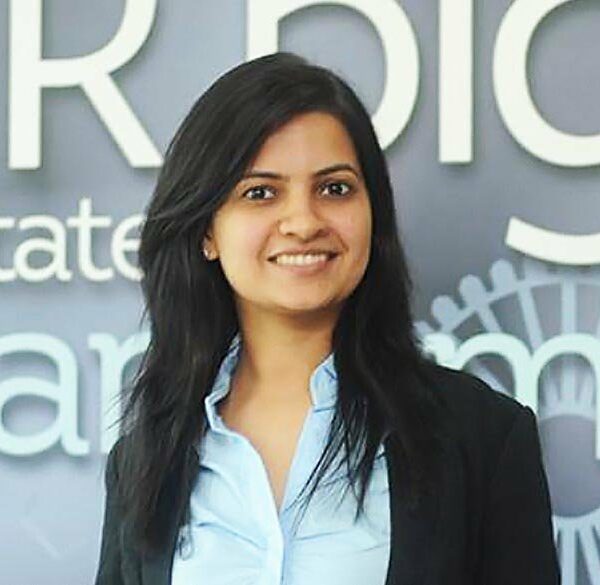There are presently about 3,500 psychiatrists in India, with even fewer numbers of psychologists. The ratio of the psychiatrist to the number of people in India is three to every one million people. Hence it does not come as a surprise that India has the highest rate of depression at 36%, as well as the highest suicide rate in the world. The stigma against it does not make it any easier to reduce the numbers. But some people are still trying their best to reduce this stigma and fight the illness like any other physical illness. Here are names of some women contributing to the Mental Health in India.
Anureet Sethi and Arushi Sethi (Trijog) –

The mother-daughter duo who gave birth to the mental health care platform, Trijog – Know Your Mind. Together they dreamed of a society free from stigma around mental health and right care provided to create a healthy, mindful society. A project that started as a college assignment took form into something more meaningful and beautiful when Arushi took the project to her mother, Anureet. Together they started a progressive mental wellness platform, which is born out of a penchant for enabling minds and creating a stigma-free society. Located in Powai, Mumbai this organisation, with a team of 20 psychologists worldwide, is affiliated with Rehabilitation Council Of India and provide counselling over the phone and digital interface.
Dr Lakshmi Vijayakumar (Sneha) –

Dr Lakshmi Vijayakumar, who started her career almost 25 years ago and is known for her research on Suicide Prevention Strategies started an organisation called Sneha, India’s premier suicide prevention centre in 1986. She is currently a member of the WHO’s Network on suicide research and prevention and is also a member at the International Academy of Suicide Research. She was one of the most influential in the inclusion of suicide prevention in the National Mental Health Policy of India and is currently working to decriminalizing attempted suicide.
She is presently working as an Associate Professor at the University of Melbourne and Adjunct Professor at the University of Griffith.
Mambalikalathil Sarada Menon (SCARF & AASHA) –

Dr. Menon, a psychiatrist, social worker and founder of SCARF, is the first woman psychiatrist in India. During her tenure at the Institute of Mental Health (then known as Government Mental Hospital) in Kilpauk, she started AASHA, a community-based organization assisting the families of mentally-ill people based in Chennai. She along with a few like-minded people, together in 1989 started the Schizophrenia Research Foundation(SCARF), a non-profit non-governmental organisation, for the rehabilitation of people afflicted with schizophrenia and other mental diseases.
“These people can be made whole. Mental illness is like any other illness. Response to treatment should not be sidelined from the mainstream of medicine. If treatment is not given properly, relapses occur. About 20 per cent recover well fully, 60 percent need rehabilitation to come back to original state, 20 per cent do not recover. Even with this 20 per cent one can work on their residual ability and tap their resources to a constructive goal. When we can tolerate a drunkard, why not a schizophrenic? Give affection. Be considerate,” says Dr Menon.
Ratnaboli Ray (Anjali) –

Ratnaboli Ray, a psychologist and mental health activist, has herself gone through depression in 1997 due to which she was forced to resign from work. She was wrongfully locked up in a mental hospital by union organizers who tried to intimidate her. She uses this personal experience to try to change how the government mental hospitals are run. She is a leading advocate for the rights of people with psychosocial disabilities (mental health conditions), who founded a nongovernmental organization that provides skills training to people with psychosocial disabilities living in government institutions, Anjali. Ray and her organisation that are the main partners of Human Rights are fighting for the rights of the mentally disabled in India.
Reshma Valliappan (Mind Arcs & The Red Door) –

Reshma, who suffered from schizophrenia herself and overcame it without any medications, is an artist-activist for issues like mental health, disability, sexuality and human rights. She co-founded the Mind Arcs a platform for activism, business opportunities, and understanding mental health concerns at large and is a part of the initiative The Red Door, an online platform to address the issues of mental health.
“When you say schizophrenia its automatically a taboo, a mental illness, a disease. Schizophrenic is an adjective. But I want to embrace it, I don’t want to deny it, because this is how people identify people like me. They give it a stamp so I’ve said fine – if that is what you are going to call me, I will take that label and own it. The way you are an artist, I am schizophrenic. Now you deal with the definition you have given me because this is mine, ” says Reshma.
Minal Lonkar (Animal Angels) –

Minal is a Clinical psychology student who uses animals as co-therapists in her practice. A vision seen by Mrs Shyamashree Bhosle, principal of TMC’s Dharmaveer Anand Dhige Jidd Special School, to implement the idea of Animal Assisted Therapy was fulfilled by Minal and Ms Kshitija Koppal, a renowned Canine Behavior Counselor and a dog trainer. Bhosle wanted to implement the AAT in her school which at that time was fairly rare and Minal believed that the dog if trained properly, could become a good companion for the children.
After the success of the project in Dharmaveer Anand Dhige Jidd Special School, Minal decided to start an organisation dedicated to AAT with the help of some like-minded friends. The organisation Animal Angels Foundation was started in 2003 to show the healing power of pets.
Tripura Kashyap (Rainbow Inc.) –

Tripura is a choreographer and movement therapist, who is trained in Bharatnatyam, Kalaripayyatu and modern dance. Watching her wheelchair-bound brother move his upper body to his favourite songs and seeing visually impaired kids learning to play instruments during her institute days pushed her to learn dance/movement therapy at Hancock Centre in Wisconsin, USA. She founded the Apoorva Dance Theatre in Bengaluru and brought the movement therapists working in India in isolation under a common banner called Creative Movement Therapy Association of India. Rainbow Inc. is an initiative by Tripura to discover the dancer within each person, with the tagline, “Those who danced were thought to be insane by those who could not hear the music.”
Monica Kumar (Manas Foundation) –

Monica is a Clinical Psychologist who realised the gap between provision and implementation of mental health service by integrating mental health care units while working in hospitals. Their interventions had limited reach and it only benefited people who were either psychologically sophisticated to seek help or those who had been referred after exhausting all other options. She aspires to create a multi-tiered model of recovery for mental illness management and alleviation that is accessible and affordable for all. The Manas Foundation was started with the vision to resolve the deep stigma that is attached to mental concerns which have shaped the way people understand and access mental healthcare.
Vandana Gopikumar & Vaishnavi Jayakumar (The Banyan) –

In their early twenties, Vandana & Vaishnavi came across a distressed woman outside their college, Women’s Christian College who was mentally ill. Even though they tried to give all the help they could, they could not find any suitable help for her and decided to take matters into their hands. Vaishnavi dropped out of her MBA course to help Vandana co-found the organisation The Banyan, non-governmental organisation based in Chennai that caters to the mentally ill and homeless women in the city. A programme NALAM under The Banyan provides outpatient clinics and community based mental health care in both urban and rural areas. These clinics are free of charge and provide mental health and social care services, address distress, common mental disorders and severe mental disorders.
Anna Chandy (TLLLF Chairperson) –

In their early twenties, Vandana & Vaishnavi came across a distressed woman outside their college, Women’s Christian College who was mentally ill. Even though they tried to give all the help they could, they could not find any suitable help for her and decided to take matters into their hands. Vaishnavi dropped out of her MBA course to help Vandana co-found the organisation The Banyan, non-governmental organisation based in Chennai that caters to the mentally ill and homeless women in the city. A programme NALAM under The Banyan provides outpatient clinics and community based mental health care in both urban and rural areas. These clinics are free of charge and provide mental health and social care services, address distress, common mental disorders and severe mental disorders.
Anna Chandy (TLLLF Chairperson) –

The beautiful actress, when at the peak of her career, was diagnosed with depression. Despite the stigma against mental health issues in India, she came forward about her depression showing the world the reality of celebrity life. She is the brand ambassador for the NGO Indian Psychiatric Society, and started her own organisation called The Live Love Laugh Foundation in 2015. The goal of the organisation is to bring awareness about mental health issues and reduce the stigma against it.
Tanvi Malick (The Bare Talk) –

Tanvi is the first Sex Educator in India and is also a Clinical Psychologist & Hypnotherapist, who studied Psychological First Aid from John Hopkins University, America. She started the organisation The Bare Talk that provides help and awareness about mental health and conducts workshops, classes, and counselling on sex education, which is the most unspoken topics in India. It is an organisation promoting sex education & conversations about mental health in India.
Sandhya Ravishankar (survivor) –

Sandhya, who is a well-known journalist suffered from depression and was unemployed for almost two and a half years because of this. She accepted in the promotional video of the TLLLF for the #NotAshamed campaign that her attempts for suicide were actually her cry for help and attention to how serious her illness was. Sandhya, as a journalist, has tried to cover topics on mental illness and the rise in suicide attempts caused due to that. She wrote in one of her articles for the news portal Al Jazeera, about the Dava Dua Project (DDP) initiated in 2008, to provide medical assistance to mentally ill patients coming to the shrine for prayer.
